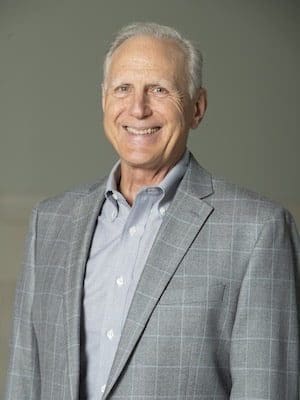By John Pierce
Fresh out of seminary in the early ’80s, it didn’t take long for me to discover the highlight of attending the Southern Baptist Convention annual meeting. It was simply listed in the extensive program as the Report from the Baptist Joint Committee on Public Affairs (now called the Baptist Joint Committee for Religious Liberty).
At the time, a shift was afoot to tie the denominational body to a political agenda that promoted government-sponsored prayer, religious favoritism and other ill-advised practices diametrically opposed to historic Baptist and American contributions to religious liberty.
Roger Williams, John Leland and Obadiah Holmes weren’t around to speak up. Neither were James Madison and Thomas Jefferson.
But never fear! The impassioned Texan James M. Dunn would mount the stage and make a strong, well-reasoned case for the separation of church and state and unfettered religious freedom for all.
As he left the stage, messengers (delegates to the convention) would rush to microphones to make motions that SBC funds be cut from the religious liberty organization supported by more than a dozen varied Baptist bodies and that Dunn be silenced.
At the same time, I’d find my way to where Dunn was leaving the stage just to say thanks. He could not have been more gracious. His earlier experience in campus ministry (my vocation at the time) was a connecting point. And we began connecting every now and then.
Eventually, the SBC cut ties with the BJC and Dunn no longer had a spot on the program. Oh, but he was far from silenced!
There were classic moments. Like when Vice President Al Gore, a Baptist as well, tried to boost his presidential candidacy by suggesting he’d support federal funding of religious groups. Dunn fired off an open letter to his friend in high places, telling Gore: “…This time, as we say in Tennessee and Texas, you’ve ripped your britches.”
When The Christian Index (the historic Baptist newspaper for which I worked in the 1990s) sought to recognize its 175th year with a tour of Washington, D.C., where the publication had been founded by Luther Rice in 1822, Dunn was of great help. We held one session in the Roosevelt Room in the White House.
But then, Dunn was always being helpful to others. And, likewise, friends helped him to fulfill his mission.
After SBC funding was cut from the BJC, supporters rallied to Dunn’s side and the Baptist voice for religious liberty in Washington, D.C., is as strong as ever. In retirement, James and his wife, Marilyn, moved to Wake Forest University where he imparted his passion for a free faith to a new generation of ministers.
A little more than 15 years ago I was summoned to a conference room at Mercer University’s Atlanta campus to meet with the Board of Directors of Baptists Today. They asked me to invest myself in shaping the publication into a new, hopeful future. I was not sure about that.
But I looked around the table and saw several of my heroes — like Jimmy Allen, Carolyn Weatherford Crumpler and James Dunn. How could I say no?
Despite health challenges, James returned recently for yet another term on the Baptists Today Board. He was a constant source of encouragement and support (the important kind that comes in the form of a generous check).
He inspired me to keep pushing for the fullness of freedom for all rather than succumbing to fear. He helped me to believe that the Christian faith, if indeed the truth James knew it to be, didn’t need a helping hand from government.
True faith simply needed an environment in which it could be freely expressed. Belief is never coerced. Never.
Like Thomas Jefferson, James Dunn died on the Fourth of July with justice in his heart and freedom on his lips.
It is important to remember James Dunn. It is more important to remember the fragile, cherished treasure of religious liberty FOR ALL — for which he stood so firm.
Director of the Jesus Worldview Initiative at Belmont University in Nashville, Tennessee and former executive editor and publisher at Good Faith Media.

